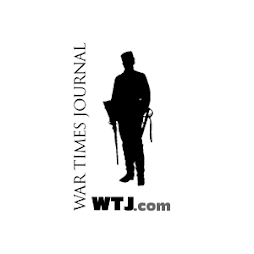This is coolbert:
"And here let me say, let no one suggest that we British have not at least as great an interest as the United States in the unstinting and relentless waging of war against Japan.
And I am here to tell you that we will wage that war side by side with you in accordance with the best strategic employment of our forces, while there is breath in our bodies and while blood flows through our veins." - - WINSTON CHURCHILL - - May 19, 1943.
And I am here to tell you that we will wage that war side by side with you in accordance with the best strategic employment of our forces, while there is breath in our bodies and while blood flows through our veins." - - WINSTON CHURCHILL - - May 19, 1943.
Winston Spencer Churchill, before a Joint Session of Congress, 1943, pledging unconditional support toward the defeat of Japan, resources of England and the British Empire to be unstinting.
This is a little known aspect of the Second World War [WW2].
British contributions to ultimate victory in the Pacific theatre during WW2 - - up unto at least 1945 - - rather meagre, almost non-existent.
I am of course speaking of combat as waged against the Japanese not including the CBI theatre [China-Burma-India]. Burma and India being an almost exclusively British action, the Fourteenth Army [14th Army] performing yeoman service of the most difficult sort for a period of YEARS!
"yeo·man - - 6. performed or rendered in a loyal, valiant, useful, or workmanlike manner, esp. in situations that involve a great deal of effort or labor"
British forces, when deployed to the Pacific theatre, almost exclusively naval units, not a token deployment, but a rather significant and powerful striking force.
This was the British Pacific Fleet.
"The British Pacific Fleet (BPF) was a British Commonwealth naval force which saw action against Japan during World War II. The fleet was composed of British Commonwealth naval vessels."
"The British Pacific Fleet was, and remains, the most powerful conventional war fleet assembled by the Royal Navy. By VJ Day it included four battleships, eighteen aircraft carriers, eleven cruisers and many smaller warships and support vessels."
BPF seeing extensive combat during the Okinawa campaign, 1945, guarding the western approaches to the U.S. naval task forces involved in the landings and the subsequent battle to capture the island. Deployed in such a fashion to ward off kamikaze attack from Japanese ground based aircraft flying out of Formosa [Taiwan].
And was successful in this mission. As with the Fourteenth Army in the CBI theatre, BPF also performing yeoman duty, greatly appreciated!
If indeed a land invasion of Japan had occurred, other British combat units were slated for deployment to the Pacific theatre and would have seen action! Units to include:
* British Special Air Service [SAS]. SAS units conducting unconventional military operations against Japanese targets, target marking, reconnaissance, guerrilla warfare, etc.
* Royal Air Force [RAF] "Dam Busters" Squadron dropping "Tall Boy" and "Grand Slam" bombs on selected targets.
* Underwater demolition teams [UDT] and naval special operations units infiltrating Japanese coastal waters and harbors, gathering intelligence, sabotage missions, etc. Naval special operations units as trained by the Italian Decima Mas.
By 1945 Japanese defeat was a foregone conclusion? It is thought by some that British involvement in the Pacific theatre was a mere token - - more of a political gesture? This does not seem to be the case. British aid and assistance seems to be significant enough to have warranted a big thank you! I for one think so!
coolbert.





No comments:
Post a Comment